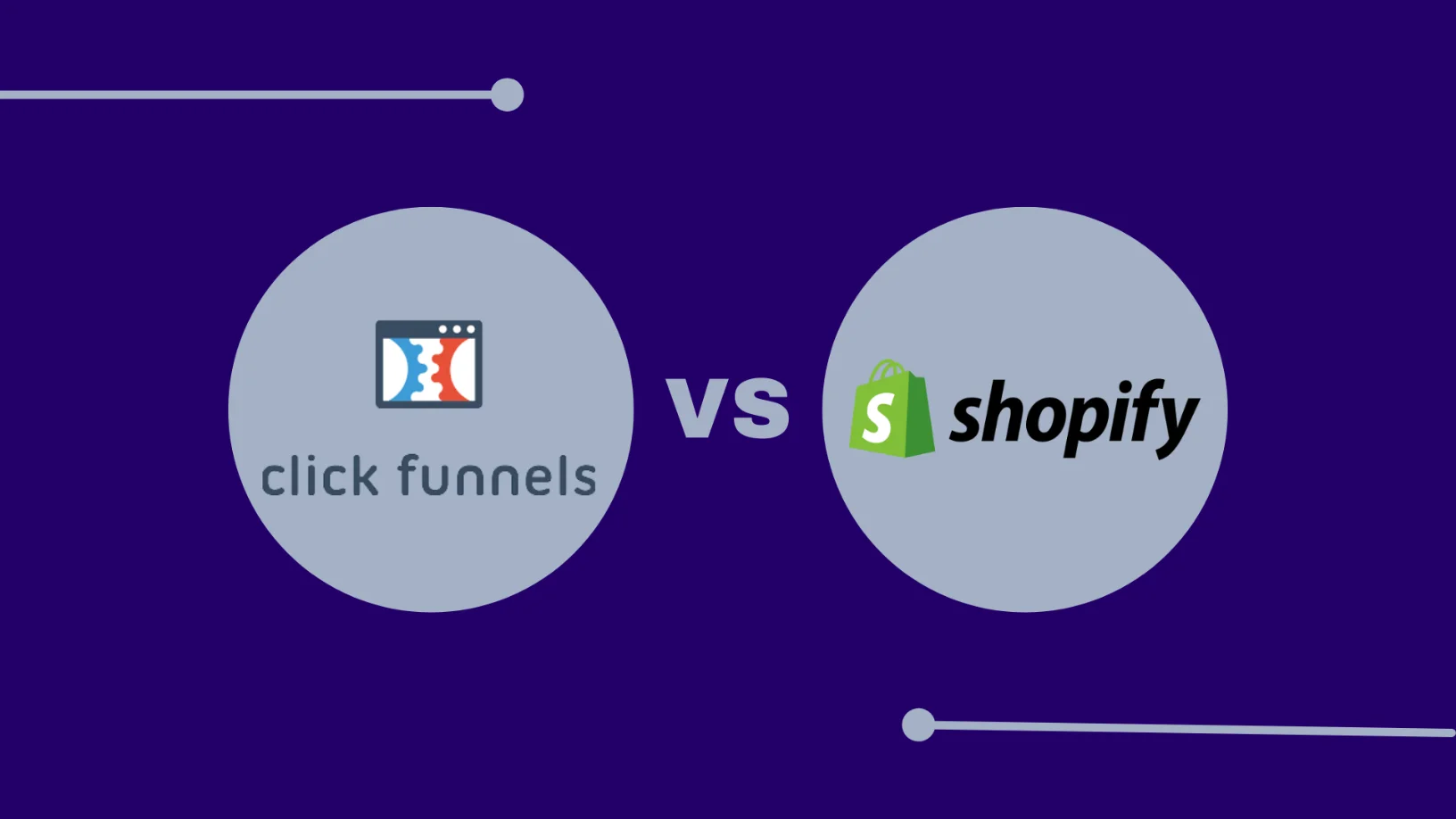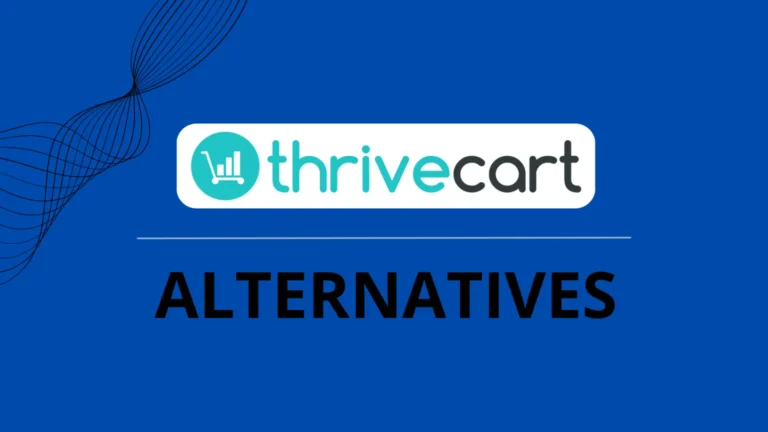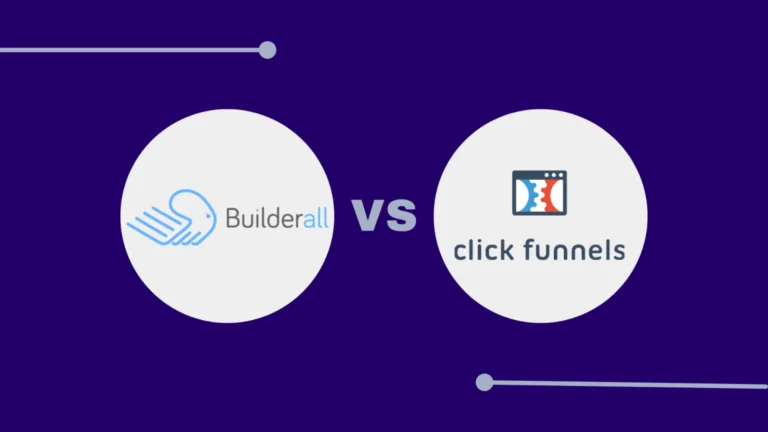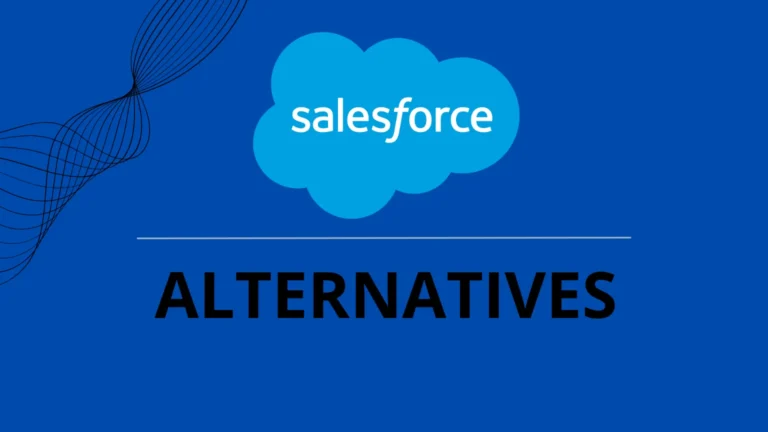The world of online business is thriving, and the tools available to entrepreneurs have never been more powerful. Among these tools, ClickFunnels and Shopify stand out as two of the most popular platforms for building and managing online businesses. But which one is right for you? As someone who’s guided numerous clients through setting up their online presence, I’ll break down ClickFunnels vs Shopify, comparing their features, strengths, and ideal use cases. Let’s dive in!”
Quick Navigation ↓
What Are ClickFunnels and Shopify?
Before we jump into the comparisons, let’s briefly define what these platforms are:

ClickFunnels: A marketing and sales funnel builder designed to help you create landing pages, sales funnels, and lead generation systems. It’s tailored for businesses that want to convert visitors into paying customers through a series of targeted steps.

Shopify: An eCommerce platform designed to help you create an online store. With Shopify, you can list products, process payments, and manage your inventory seamlessly. It’s ideal for businesses focused on selling physical or digital products.
Key Features Comparison
1. Ease of Use
ClickFunnels: With its drag-and-drop editor, ClickFunnels is incredibly intuitive. Even if you’re not tech-savvy, you can create high-converting funnels within hours. It’s designed for speed and simplicity, especially for marketing campaigns.
Shopify: While also user-friendly, Shopify involves a bit more setup. You’ll need to configure products, shipping, and taxes, which can take some time. However, once set up, it’s straightforward to manage.
Winner: ClickFunnels (for simplicity in marketing). Shopify’s learning curve is slightly steeper, but it pays off in versatility.
2. Design Flexibility
ClickFunnels: Offers numerous templates for landing pages and funnels. While these templates are optimized for conversions, they’re not as customizable as some users might like.
Shopify: Boasts a wide range of themes and customization options. If you want a unique online store, Shopify provides far more creative control.
Winner: Shopify, for its advanced design and branding options.
3. Pricing
ClickFunnels: Starts at $147/month for the basic plan, which includes funnel-building tools and analytics. Higher-tier plans provide advanced features like affiliate management.
Shopify: Plans start at $39/month for the Basic Shopify plan. You may also incur additional costs for apps, themes, and transaction fees.
Winner: Shopify is more affordable for startups, especially those on a tight budget.
N.B.: The prices of any plan may change over time. Visit each platform’s official website for the most up-to-date information.
4. eCommerce Functionality
ClickFunnels: While ClickFunnels supports eCommerce, it’s not its primary focus. You can sell products, but the platform lacks robust inventory management or shipping options.
Shopify: Purpose-built for eCommerce. It handles inventory management, shipping, taxes, and product variations with ease.
Winner: Shopify, hands down, for its comprehensive eCommerce capabilities.
5. Marketing and Sales Tools
ClickFunnels: A clear winner here. It’s packed with tools for email marketing, upsells, downsells, and A/B testing. If driving sales through optimized funnels is your priority, ClickFunnels delivers.
Shopify: While Shopify offers basic marketing tools and integrations with third-party apps, it doesn’t match ClickFunnels’ dedicated funnel-building capabilities.
Winner: ClickFunnels, for its laser focus on marketing and conversion.
Who Should Use ClickFunnels?
ClickFunnels is an excellent choice if you:
- Sell digital products, courses, or memberships.
- Want to focus on lead generation and sales funnels.
- Need a quick and straightforward way to launch marketing campaigns.
- Operate in a niche where building a deep connection with your audience is critical.
For example, one of my clients was launching an online coaching program. They needed a way to attract leads, nurture them, and close sales—all in one streamlined process. ClickFunnels was a perfect fit, allowing them to build a funnel that doubled their conversion rate within a month.
Who Should Use Shopify?
Shopify is the go-to platform if you:
- Sell physical products or manage a significant inventory.
- Need a full-fledged eCommerce solution with advanced features like shipping and tax automation.
- Want a scalable platform as your business grows.
- Prioritize having a beautifully designed online store.
For instance, another client of mine wanted to launch a boutique clothing store. They needed product variations, secure payment gateways, and shipping options. Shopify’s robust features and third-party app integrations made it the ideal choice.
Can You Use Both?
Yes, and this is a strategy I often recommend to my clients. Using ClickFunnels for lead generation and marketing funnels while running your online store on Shopify can offer the best of both worlds. You can drive traffic through high-converting funnels and then channel customers to your Shopify store for checkout.
For example, a client selling custom fitness equipment used ClickFunnels to run a marketing campaign that captured leads and nurtured them with email sequences. When the leads were ready to buy, they were directed to a Shopify store for the final transaction.
Frequently Asked Questions (FAQs)
Which platform is better for a beginner?
Shopify is generally better for beginners in eCommerce due to its straightforward setup and comprehensive tools for online stores. ClickFunnels is ideal for beginners focused on sales funnels and digital marketing.
Are there hidden costs with these platforms?
Both platforms can incur extra costs. ClickFunnels has additional charges for premium features and integrations, while Shopify’s apps, themes, and transaction fees can add up.
Can I sell digital products on Shopify?
Absolutely! Shopify allows you to sell digital products using apps like Digital Downloads, which manage file delivery to customers.
Is ClickFunnels good for SEO?
ClickFunnels isn’t designed for SEO-focused content but can be used to drive targeted traffic through paid advertising and email campaigns.
My Personal Take
Having worked with both platforms extensively, I’ve found that the choice ultimately depends on your business model and goals. If you’re a marketer or coach focused on conversions, ClickFunnels’ simplicity and power can’t be beaten. On the other hand, if you’re running an online store with a broad range of products, Shopify’s comprehensive eCommerce tools are indispensable. The synergy between the two has been instrumental in achieving our goals.
Conclusion: Which Is Right for You?
The decision between ClickFunnels and Shopify boils down to your priorities:
- Choose ClickFunnels if your primary goal is driving sales through marketing funnels.
- Choose Shopify if you need a robust platform for managing an online store.
Both tools are exceptional in their own domains, and understanding your needs will help you make the right choice. If you’re still unsure, feel free to drop a comment or reach out—I’d be happy to help you evaluate what’s best for your business.








